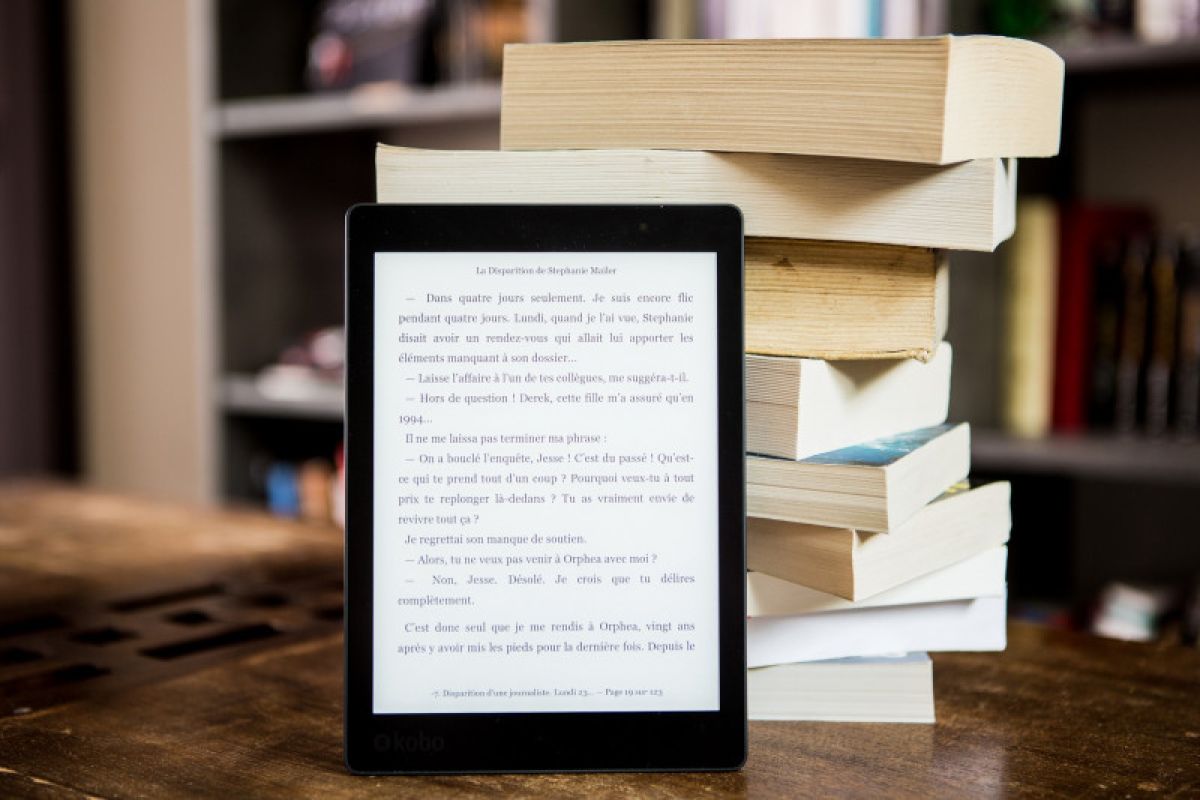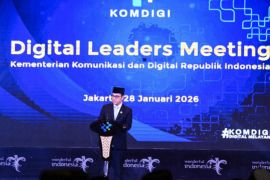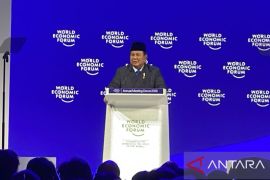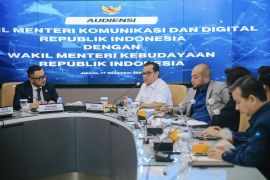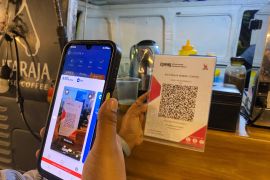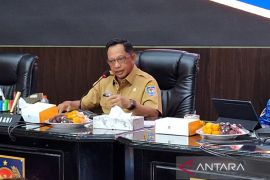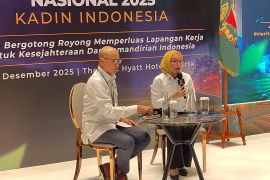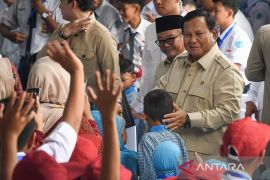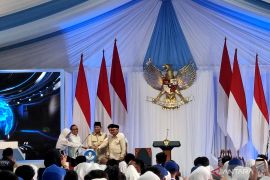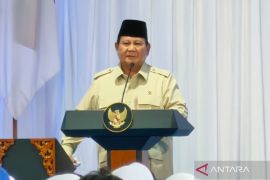To this end, the Ministry of Religious Affairs has made efforts to help madrasahs in Indonesia to adopt digital technology.
In 2021, the ministry prepared the Madrasah Affirmation Assistance fund of Rp.399.9 billion implemented through the Realizing Education’s Promise Madrasah Education Quality Reform program targeted at 2,666 madrasahs in the country.
Director-General of Islamic Education M Ali Ramdhani affirmed that each madrasah under the program received the assistance of Rp.150 million.
According to him, the assistance was given to madrasahs that had implemented the Madrasah Self Evaluation (EDM) system and the e-RKAM system (Electronic-based Madrasah Work Plan and Budget), which had been introduced in 2020 and began to be applied in 2021.
The assistance was given in the form of cash and was expected to be prioritized for the urgent needs of the madrasah, he said.
Related news: First Plenary Meeting of GPFI held to discuss digitalization
Director of Madrasah Curriculum, Facilities, Institutions, and Student Affairs M Isom Yusqi added that the assistance was expected to be utilized to strengthen the digitalization of madrasahs.
In addition, the assistance can also be used to improve the quality of sanitation and other program needs in order to support the quality of learning in madrasahs amid the digital era.
However, Yusqi admitted that the assistance is yet to target all madrasahs in Indonesia due to the ministry’s limited funds.
For reporting, he affirmed that the ministry had implemented the e-RKAM system as an e-planning and e-budgeting for madrasahs. Therefore, the accountability of reports regarding the assistance for madrasahs can be guaranteed.
Related news: Four key sectors can drive digital transformation: Ministry
Before the Pandemic
Yusqi explained that the madrasah digitalization program had been carried out since 2019 before the COVID-19 pandemic hit Indonesia.
He informed that a number of programs had been carried out, including revising the technical guidelines for the utilization of the school operational assistance (BOS) funds so that they can be used to support the online learning system.
The ministry has also provided assistance in procuring servers and CBT (Computer Based-Test) Computer Networks for all levels of madrasah: Aliyah (senior high school), Tsanawiyah (junior high school), or Ibtidaiyyah (elementary school).
Yusqi admitted that the budget for the assistance is not much, even very limited. He informed that in 2021, the assistance recipients were only 200 Madrasah Aliyah, 250 Madrasah Tsanawiyah, and 100 Madrasah Ibtidaiyah.
Since 2019, the Ministry of Religious Affairs has also provided assistance for the development of State Madrasahs through the SBSN (National Sukuk) funds.
Among others, the assistance is aimed to support the implementation of digital classes. Until 2022 so far, the state madrasah development assistance through SBSN is still ongoing.
In the midst of the pandemic, the ministry has also continued to accelerate the digitalization of madrasahs through several programs, for example, the madrasah digital books program, which let students access free e-books through https://madrasah2.kemenag.go.id/buku/.
For E-learning, the ministry partnered with Google (Google for Education) to provide Google Classroom, Google Meet, and other Google services, as well as providing unlimited storage for madrasah teachers and students.
Related news: Link and match digital talents to support e-government
Then, the ministry collaborated with four mobile service providers such as Telkomsel, XL Axiata, Indosatooredo, and Tri to provide cheap internet plans for teachers, students, and school staff of madrasahs.
In addition, the ministry also provided free access to an educational platform Dragonlearn.org, provided the Online New Student Registration Service (PPDB) for all madrasahs throughout Indonesia, as well as initiated a movement to raise donations for students that do not own a gadget for learning.
Innovation
In order to expand the digitalization of madrasahs, the Ministry of Religious Affairs involved several parties, one of which through the Digital Madrasah Innovation Award.
The step is taken in several regions, among others is in West Java, by involving an ed-tech start-up Infradigital and the West Java’s regional office of the Ministry of Religious Affairs.
One of the goals of the program is to accelerate and equalize the digitalization of madrasahs.
The program is set to run in 15 districts and cities in West Java in 2022 and 12 districts and cities in 2023.
Related news: Digital transformation creates efficiency in government and education
The Acting Head of the West Java’s regional office of the Ministry of Religious Affairs, Yusuf Umar, explained the ministry had prepared seven programs, one of which is digital transformation.
There is a series of activities that madrasahs carry out under the program.
The program is started with socialization through webinars, training, and mentoring both in online and offline modes, digital madrasah campaign, madrasah digitalization survey, madrasah research, and will be closed with an awards ceremony for the best madrasahs in the province.
The Vice president of Infradigital Muhammad Irvan said that the program is a form of collaboration that needs to be continued for the success of digitizing madrasahs in the metaverse era.
It is hoped that the program can serve as an example in the efforts to improve the equality of madrasah digitalization from cites to remote areas, both private and public schools, so that no madrasah in the country will be left behind in terms of digitalization.
Related news: Foreign tourists allowed to enter Indonesia via Bali, Riau Islands
Related news: Malaysian GM succumbs to COVID-19 in Central Kalimantan
Editor: Fardah Assegaf
Copyright © ANTARA 2022
